What literary pilgrimages have you gone on?
Oh, a few! I’ve done a literary trek through Paris, one through Warsaw Poland and then I’ve done some local ones like reading books by local authors. What is the first book that made you cry? Probably Anne of Green Gables. What is your writing Kryptonite? I have a new computer and I’m terrified of rebooting it…. Do you want each book to stand on its own, or are you trying to build a body of work with connections between each book? I am all over the place right now, but I am working on a family story which is non-fiction and I have a few ideas for some fiction books that would stem from it. How did publishing your first book change your process of writing? My very first book was self-published, my second was with an Indie Press, and the third I’m aiming for Traditional Publishing, so my process has changed quite a bit. The real breakthrough I had was that I realized I could actually do it. As a writer, what would you choose as your mascot/avatar/spirit animal? Maybe a falcon because they can travel vast distances and see the world from a different perspective. What did you edit out of your books? (keep it family-friendly, please) I’m going through that process right now. I specifically over wrote, so now I’m trying to trim down stories and events that don’t push the narrative forward. What one thing would you give up to become a better writer? Having a long term career and home base. I’ve kind of done this, I move frequently and to date I’ve had more jobs than I can count on one hand. What is your favorite childhood book? Growing up I read anything and everything I could get my hands on, but one of the books that impacted me the most was probably The Neverending Story. What is the most difficult part of your writing process? Staying confident when I hit a roadblock. What is the easiest part of your writing process? The actual writing part when I stop overthinking everything. A common misconception entwined with authors is that they are socially inept, how true is that? I think that is just a myth. While I do like my quiet private time, I’m actually very good in social situations. I took acting lessons and spent many years teaching (Pilates) so I can always hold my own when needed. When did it dawn on you that you wanted to be an author? Well I got my first rejection when I was eight, so I would say that around then. Who are your biggest literary influences? It’s funny, but they seem to change as I evolve. I would say that I often go back to Murakami, Camus and Kafka. What’s your favorite movie which was based on a book? Why? Hmm…. Well, it’s not exactly a movie but Unorthdox (a mini series on Netflix) was superb. I was completely absorbed by the story and the fact that it differed a bit from the book didn’t bother me at all. Then again, I always have a soft spot for The Princess Bride and yes, I’ve seen it about a million times. How did it feel when your first book got published? How did you celebrate? Funny enough, there wasn’t much fanfare for either of my books. I received the advanced reader copies of my second book while I was at a conference so I had a mini ‘yay’ moment by myself. It was very surreal, holding it for the first time. What is that one thing you think readers generally don’t know about authors? How much we agonize over every word that goes into our books. When it comes to research for your books, are you a hunter or a gatherer? Talk about your research process. My first book was an accumulation of 20+ years of working in the fitness industry. I had already written several hundred blog posts and articles on the subject, so that mainly involved gathering everything and putting it together. My second book, Tell Me What You See was more of a creative endeavour that came about during a really rough moment in my life. I was able to completely lose myself in the process. My current WIP is a family story which means hours of interviews and research and even some travel. I have piles of photo albums and letters that I take notes on and then add to my story. Could you be housemates with your characters? Why or why not? Currently no. I love my family but I don’t want to live with them. What’s your typical writing routine or schedule? I think about my book 24/7 and I write in bursts throughout the day. I’m also a freelance writer as well as the managing editor for a literary magazine, so my writing times are flexible. Writing can be an emotionally draining and stressful pursuit. How do you recharge? Running and taking ballet classes before COVID and now, going for long walks with my husband and of course, reading everything I can get my hands on. Do you prefer music or silence when you write? Do you have a writing playlist? What’s on it? No music, but I often have the TV going in the background. I couldn’t tell you what is on but I like the noise. I’ve also started getting up and jogging on the spot every hour or so, that really helps me focus. Which celebrity would you choose to narrate your audiobook? Meryl Streep. What is your favorite of the six senses (touch, taste, smell, sound, sight, intuition) to write about, why? Sight. I am a very visual person. I have a degree in screenwriting and I find that I often fall back on the techniques I learned in school. It was also the inspiration for my book, Tell Me What You See. What is a favorite location you’ve written about? Have you visited that place? How did you choose which details to include? It would have to be New York. I’ve been there several times over the years and it’s a city that is near and dear to my heart. There was one event in particular that involved a stalker and Louboutin heels which made for a great story. Travel back in time (without negative effects for you or the timeline) what year do you visit? Why? I recently re-watched Midnight In Paris so I would have to say Paris in the 20s. I would love to sit down with some of those writers and artists. What is something about your hero or villain that drove their character, but you didn’t specifically tell your reader? Since I am writing a nonfiction novel I have kept some of the more personal details out of the book. I don’t believe in airing dirty laundry and the story works without revealing everything. Have you ever resuscitated a project you'd shelved? What helped it work better the second time around? The book I’m currently working on is one that has had many iterations over the years. I took agent feedback seriously and decided to rewrite my book. Then I found an amazing editor who has been working tirelessly with me to take it to the next level. What do the words “literary success” mean to you? How do you picture it? That’s a tough one. I think it would be getting recognized by major festivals and national organizations. Can you tell us about your current projects? Other than the nonfiction family story, I’m also working on a series of short stories that are based on real events/observations from my travels. Any advice you would like to give to aspiring authors? Don’t overthink your writing, don’t spend too much time agonizing over each sentence, just write. Also, try to get published, send out opinion pieces or articles, it does wonders for your self-esteem. For me, publishing thousands of blog posts led to writing articles for online publications which led to writing my first book. Please provide links and/or instructions about how readers can purchase signed copies of your books. The best place to find my book is on Amazon.com, I’m happy to send a handwritten note. Or get in touch with me through my website, carolinetopperman.com
2 Comments
What literary pilgrimages have you gone on?
I think writing my first book, which was non-fiction, was a sort of pilgrimage. It took ten years to write—I had two tiny boys when I started it so even finding time to write was a challenge. The book is about my experiences as a pastor’s wife and how I never felt like I fit that role. It’s also about my struggle with anxiety and anger. It was very cathartic to write out my thoughts, feelings and experiences. Going from asking the question, can I write a book to actually writing it was a pilgrimage of sorts. What is the first book that made you cry? The Little Match Girl was one of the first stories I ever heard that made me at least feel very sad. I was never much of a crier. But even at that young age, I was aware how a story could affect your emotions. What is your writing Kryptonite? I never want to unleash negative events and consequences on my characters. I try to protect them at first. It takes a conscious effort on my part to throw the bad stuff at them. Do you want each book to stand on its own, or are you trying to build a body of work with connections between each book?At the moment my fiction books are a body of work with connections but I’m working on other manuscripts that are totally unconnected and also different genres. How did publishing your first book change your process of writing? As I said, my first book was non-fiction. Publishing it gave me the courage to try writing fiction, along with some encouragement from my writing partners. With that courage in my back pocket, I signed up for NaNoWriMo and wrote my first novel, which I’ve since published. NaNoWriMo has changed how I write. I always use November as a time to start a new project and get words on a page. As a writer, what would you choose as your mascot/avatar/spirit animal? A rabbit. We have a pet dwarf rabbit named Whiskers. What did you edit out of your books? (keep it family-friendly, please) I had to really edit my main protagonist in Exit Stage Right. At first, she came off a little too rough around the edges. What one thing would you give up to become a better writer? That’s a hard question. I would give up coffee. I drink at least three cups a day so that’s saying something. What is your favorite childhood book? Anne of Green Gables What is the most difficult part of your writing process? Balancing the marketing with the actual writing. I could spend a forty-hour week just doing the marketing for my work. Plus, I work part-time at a library. I need more hours in a day, but don’t we all? What is the easiest part of your writing process? Is there an easy part? Hmm. I think starting a new project is easy because it’s exciting and there’s so much possibility in those first few chapters. No plot tangles to get yourself out of. A common misconception entwined with authors is that they are socially inept, how true is that? A little bit true. I’m really good at one on one but in a group, not so much. I don’t do small talk well. When did it dawn on you that you wanted to be an author? I’ve wanted to write since I was a kid. I told myself stories from a young age. Who are your biggest literary influences? Lucy Maud Montgomery, Louisa May Alcott, Sarah J. Maas. Any good writer influences me. I read their stories and ask myself, “How did they do that?” What’s your favorite movie which was based on a book? Why? One True Thing by Anna Quindlen. The mother/daughter dynamic was so well portrayed by Meryl Streep and Renee Zellweger. How did it feel when your first book got published? How did you celebrate? It was surreal actually. I’d dreamed about it for so long. I kept asking myself, “How can this be happening?” We did a big book launch with family and friends to celebrate. What is that one thing you think readers generally don’t know about authors? I’m a huge reader and I’m always surprised how normal authors are when I meet them. In my mind, they are rock stars but in reality, they could be your neighbour. When it comes to research for your books, are you a hunter or a gatherer? Talk about your research process. I’m a gatherer I think. Not a big fan of research so I’ll never write a historical book. Too many details. That being said, I do like interviewing people. In Exit Stage Right, I had to learn about injuries and physical therapy so I interviewed a friend’s daughter who is a PT. In my new book, I interviewed a hockey goalie to learn about training, etc. You have to be interested in what you research which is why you never want to write about something you’re not passionate about. Could you be housemates with your characters? Why or why not? No, I couldn’t be housemates with my characters. I’m introverted and way better on my own. What’s your typical writing routine or schedule? During NaNoWriMo, I get up at 5am and write for two hours. The rest of the year I try to write in the morning because that’s my best time but I’m still trying to figure it out. It’s hard to balance family, job, and writing. And I can’t figure out why I can do it during NaNoWriMo but not after it’s over. Writing can be an emotionally draining and stressful pursuit. How do you recharge? I walk and do yoga. I need lots of alone time to recharge. Do you prefer music or silence when you write? Do you have a writing playlist? What’s on it? Silence. I can’t have any music playing. It interrupts the flow of thoughts. I will sometimes listen to music as I walk and it inspires me and gives me ideas but then when I sit at my desk I have to turn it off. Which celebrity would you choose to narrate your audiobook? I don’t want a celebrity but I would love Angela Dawe, who narrated Then There was You by Kara Isaac, to narrate my book. She was so expressive, I could see in my mind the character rolling her eyes, Angela’s voice was that expressive. What well-known author, living or dead, do you wish could be your mentor? Why? Stephen King. Obviously he’s figured it out. What is your favorite of the six senses (touch, taste, smell, sound, sight, intuition) to write about, why? Smell. Maybe because I have a sensitive nose. An aroma can be good or bad, subtle or strong, and it adds depth to the setting and scene. What is a favorite location you’ve written about? Have you visited that place? How did you choose which details to include? A summer camp. I went to camp as a kid and my own kids have too. I included some details from my kids’ camp experiences in the book such as an indoor climbing wall that was part of the longhouse. It fit with my sports theme in the book. Travel back in time (without negative effects for you or the timeline) what year do you visit? Why? I’d like to go back to the 60’s. It’s not that far back in time but there was so much happening in the world. I wanted to be a journalist and it would have been incredible to cover some of those stories. What is something about your hero or villain that drove their character, but you didn’t specifically tell your reader? I maybe didn’t come right out and tell the reader but I hinted at it in Exit Stage Right. Shelby, my antagonist felt unloved by her mother. Have you ever resuscitated a project you'd shelved? What helped it work better the second time around? Not yet. What do the words “literary success” mean to you? How do you picture it? It’s changing. Literary success would be writing full-time and making a living off it. I would love to go the traditional route and have people do marketing and promotion. But there are some huge perks to Indie publishing. Literary success would also be speaking more at events, schools, bookstores—about books and writing. Can you tell us about your current projects? This spring I have a companion book to Exit Stage Right coming out titled Face Off. It’s Shelby’s story. It takes place at an elite sports camp for the first half of the book. She’s been sent there by her mother and she has to prove she’s deserves to be there. Ballet dancers are athletes too. Her nemesis Tristan, a NHL prospect, doesn’t agree. They face off with each other in a series of challenges, hoping to prove the other wrong. Any advice you would like to give to aspiring authors? Read, read, and read some more. Especially the genre you want to write. Then sit your butt in a chair and write. Don’t let anything stop you. Please provide links and/or instructions about how readers can purchase signed copies of your books. For signed copies, you can email me at [email protected] or contact me through my websitewww.jenniferwillcock.com 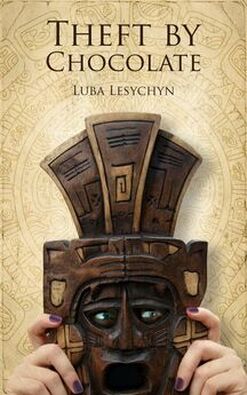 Suspense, Humor, Mystery, A Dashing Englishmen, A Flattering Younger Man, the Wonder of a Museum's Backstage, and Chocolate... what's not to love about this story! Luba Lesychyn is an extremely talented writer. She understands how to dangle details in ways that have you looking forward to more excitement, without anxiety. She's a comfort writer. Pull up a cozy blanket and dive right in. I immersed myself reading her pages at night, after a day of work... shunning the rest of the real world, and allowing myself to get lost in her imaginative Toronto. I regret nothing. Theft By Chocolate is an amusing and spirited read. The story eavesdrops on the days of a chocolate addict, who is also sleuthing her way through an irresistible mystery. At every new chapter, I was impressed by Luba's expressive writing style. When her characters walk through hallways filled with anxiety, sit quietly in a cathedral, or collapse on the bed in sheer exhaustion, you experience every moment as if that character's reality was your own. Luba entices you to step into her world and live it fully. Through the intrigue of the story, she shares valuable reminders of some of life's most important lessons, in ways you'll never forget. Yes, a spoonful of powered chocolate does affect us in exactly THAT way! Secrets are often hidden in (nearly) plain sight, so you should be keenly observant. Public humiliation doesn't always have to be the precursor to a doomed life. And most importantly, Librarians can indeed be seductively charming, in their own bashful way. Luba Lesychyn is an author who clearly understands how to bait her literary fish and then reel them in for the vigorous PLOP on the sandy shore. But not to worry, she'll tuck you back into the water again, safely returning you to the comfort of characters you are sure you know, and environments that you wish you could visit, without ever revealing the entire mystery. And that's exactly what we want from an author. Thank you, Luba Lesychyn, you will continue to have a place in my TBR pile!
What literary pilgrimages have you gone on?
I majored in psychology 35 years ago, but discovered my passion for writing in the late 1980s when I became a communications writer for a Bloomfield Hills marketing company. In 1990 I sent an article to Marketing News, a publication of the American Marketing Association. The article, Teamwork Delivers a Clear Implementation Document, was published in their Sept. 3, 1990 edition. Immediately thereafter in 1991 I had discovered in very small print that a magazine I had been reading since I was kid said they accepted freelance articles and offered payment for them. Later that year my first paid article, There Shouldn’t be a Maintenance Free Aquarium, But There Will Be was published in Freshwater & Marine Aquarium Magazine. The writing bug had bit me and I soon wrote freelance for other publications like Detroit Metropolitan Woman’s Magazine, Michigan Out-of-Doors, and Michigan History Magazine where I wrote a story on the Belle Isle Aquarium squashing notions it was the first U.S. aquarium when in fact it was the second. During this period I became a stringer for The Grand Rapids Press and a Caucasian Editor of the Afro-American Gazette. I soon became an editor of a weekly Lansing newspaper, The Holt Community News and continued my freelance writing until 1998 when I signed up for the first website ever tied to a writer’s lounge, FreelanceWorkshop.com. An accompanying book on Writing for Publication was published on Amazon in 1999. Since then I began to publish more academic writing books to help teachers through a variety of different publishers. Among the most popular are Social Media Writing Lesson Plans and Word Press for Student Writing Projects. https://www.amazon.com/Erik-Bean/e/B00DZ0C2CQ?ref=sr_ntt_srch_lnk_1&qid=1597068716&sr=8-1 What is the first book that made you cry? As a child I cried many times while reading E.B. White’s Charlotte’s Web. I felt so sorry for Wilbur, the pig. What is your writing Kryptonite? I want to connect with people to help them either personally or professionally. Do you want each book to stand on its own, or are you trying to build a body of work with connections between each book? So in this most recent collaborative effort, Ethan’s Healthy Mind Express: A Children’s First Mental Health Primer, I was so fortunate to work with a co-author of my social media writing books, Emily Lane Waszak as well as family friend Sherry Wexler (who served as editor) and Sherry found a most amazing illustrator, Gail Gorske who develop all 19 pictures using paper and lighting skills while photographing them. The book was inspired by the loss of my 17-year-old son in August 2018 after suffering from autism and other atypical diagnoses for years. We wanted to develop a book to help other children struggling with various mental challenges to show them they are not alone and to provide them ideas where to go for help as well as how to avoid problem areas of the internet that can lead to isolation and loneliness. So this book is the first of what we hope will be several published by our Michigan 501(c) nonprofit, Ethan Bean Mental Wellness Foundation. https://ethanbean.org/new-childrens-book-1 How did publishing your first book change your process of writing? In 1999 Amazon did not yet have CreateSpace or KDP so I was forced to print my paperback book locally in the Ann Arbor, Michigan area. But as far as the writing goes, I believe every writer goes through a transformation process at some point or another. As a writer, what would you choose as your mascot/avatar/spirit animal? In my case I only need my son Ethan to help guide the way. I think about the things he would want people to know in order to try and help them with mental health, help them to keep their head up in a rapidly changing world. What did you edit out of your books? (keep it family-friendly, please) In a complementary adult book series, 20/20 Prudent Leadership, we are in the process of publishing our 4th of a nine-booklet series on better self-decision-making. As the coauthor of that series with Dr. LauraAnn Migliore, our 2nd book was censored by the Amazon.com KDP platform on April 25th this year with an explanation that they were not allowing any more books to be published about COVID-19. We had adopted our third installment in our series based on the leadership style of Theodore Roosevelt, 20/20 Prudent Leadership: Conversation, Conduct, and Character, with an additional “C” COVID-19. It took two weeks of additional communications to convince the book publishing behemoth we were not touting pandemic conspiracy theories and only offering practical advice based on Biblical examples, pop culture, and recent popular egregious examples of poor decision making. More information on that series can be found at https://prudentleadership.com/ What one thing would you give up to become a better writer? Probably a job with a better salary. But I have worked in higher education for years and just recently switched to K-12. What is your favorite childhood book? As mentioned earlier it is none other than the amazing work of E.B. White, including Stuart Little. What is the most difficult part of your writing process? Finding a new angle and targeting that angle to the right audience. What is the easiest part of your writing process? Almost everyone has the potential to write, but not everyone can see that through to publication either as an indie author or through a proposal pitch to a publisher. How long on average does it take you to write a book? In my case it has fluctuated anywhere from 3 to 9 months. On average, at least 6 months. Most of my efforts have been collaborative, relying on others which can further delay time to publication. A common misconception entwined with authors is that they are socially inept, how true is that? I have not heard that as an overarching stereotype, but I suppose it can be true in some cases. Certainly, most appear to be in touch with their feelings since most typically write about experiences that have affected them or one’s they seem keenly knowledgeable about or creative enough to resonate with their audiences. To that degree they must spend time by themselves writing, editing, and re-writing and less time socializing. When did it dawn on you that you wanted to be an author? Immediately after I got that first 1990 article accepted by the American Marketing Association. Who are your biggest literary influences? On August 17th, Publisher’s Weekly published its first critical review of our award-winning book, Ethan’s Healthy Mind Express. In the review, the writer mentioned two books for which he/she indicated the reader’s of our book would like, " Great for fans of Elizabeth Swados's My Depression, Shaun Tan's The Red Tree." Swados is a late Tony nominated composure and actress and Tan is an Academy Award wining animator. In examining their work, they have now become the epitome of influences for future mental health book efforts. Prior to this and my call to write books with a mental health theme, I was drawn to dystopian works, those like Ray Bradbury’s Fahrenheit 451 about censorship. Prior to my son’s passing he bought me the 60th anniversary edition. The premise still holds up very well today. What’s your favorite movie which was based on a book? Why? The original 1966 film, Fahrenheit 451 based on Bradbury’s 1953 book. It was done very well using the theme of censorship from start to finish, so much so that no opening credits are shown in words, only narrated. How did it feel when your first book got published? How did you celebrate? Self-publishing has a celebratory feeling, no question, particularly if your work has been edited and reviewed by others who can be impartial. But getting published via a more established publisher is exciting too, for you have connected with others who believe in your work enough to contract and help promote it. What is that one thing you think readers generally don’t know about authors? That most are passionate about telling a story or provide information that can either entertain or be most useful personally or professionally. Can you tell us about your current projects? We are open to examining other mental health book proposals for children or adults at https://ethanbean.org/mental-health-books. Our series on 20/20 Prudent Leadership also is currently receiving critical reviews and compliments our mental health book mission. Are you attending any conventions/festivals where readers can meet you and/or buy your books? Please provide all the “find it” information. Prior to the pandemic we had plans to do book signings at local bookstores, but our books are stuck in the New York Offices of Baker and Taylor and Barnes and Noble with no end in sight whether they will be distributed. Ethan's Healthy Mind Express was accepted for presentation at the July 2021 Literacy & Language Arts Summer Institute, National Council of Teachers of English, Normal, IL We have presented at the 2020 Jewish Book Fair, the 2020 Rochester Writers Book Fair, and at the 2020 Fall Page Promotions Book Festival, all virtual. Our book has been featured on Detroit’s Fox 2 and WXYZ TV. https://healthymindexpress.org/press Please provide links and/or instructions about how readers can purchase signed copies of your books. A beautiful 10 x 10 hardcover autographed with our nonprofit seal on the copyright page can be purchased at https://ethanbean.org/hardcover. All proceeds support the Ethan Bean Mental Wellness Foundation and our new Healthy Mind Express Zoom story telling and poetry writing school programs. https://ethanbean.org/zoom as well as research we plan to pursue to help our understanding of autism and socialization opportunities. https://ethanbean.org/research Any advice you would like to give to aspiring authors? Follow your heart. Provide your unique way of entertaining and messaging that you know is important. But remember, you can write the best story ever, but unless you can find an audience for it, it serves little value. All authors need to hustle and be salespeople too. |
WelcomeYou'll find some interesting stuff here... some Op Eds, some Information, Book Reviews, and More. Poke around the categories and see what ruffles your feathers... in a good way! Archives
July 2024
Categories
All
|

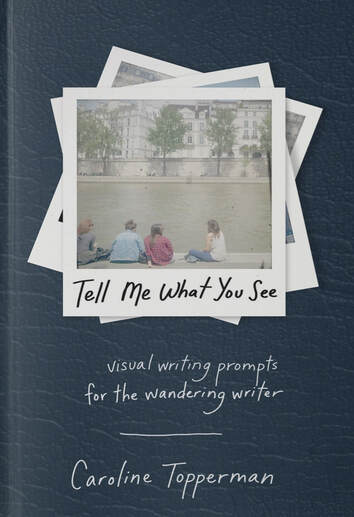
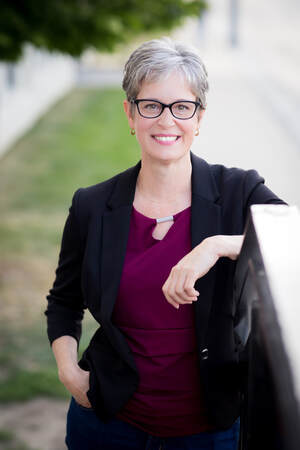
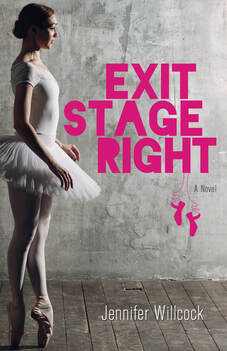
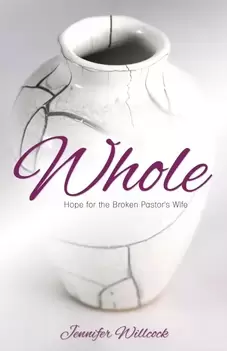
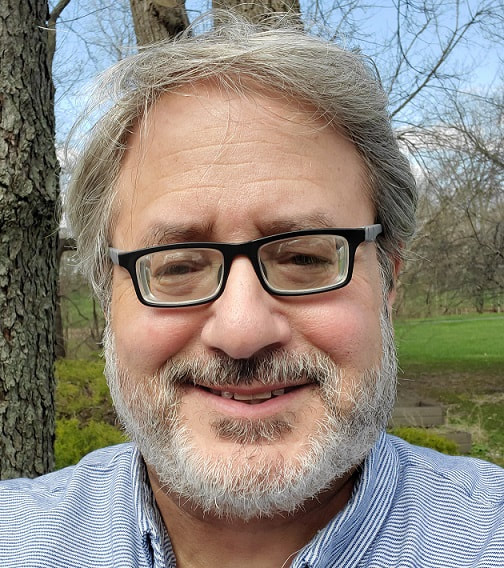
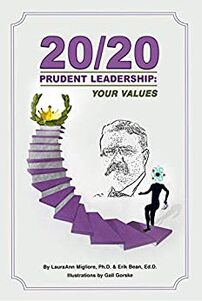
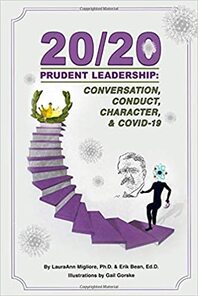
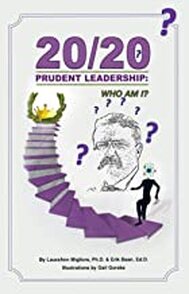
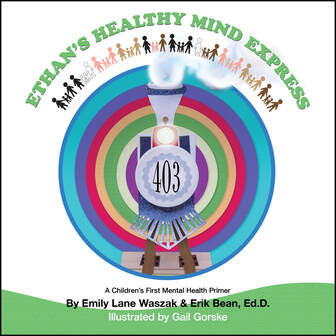
 RSS Feed
RSS Feed